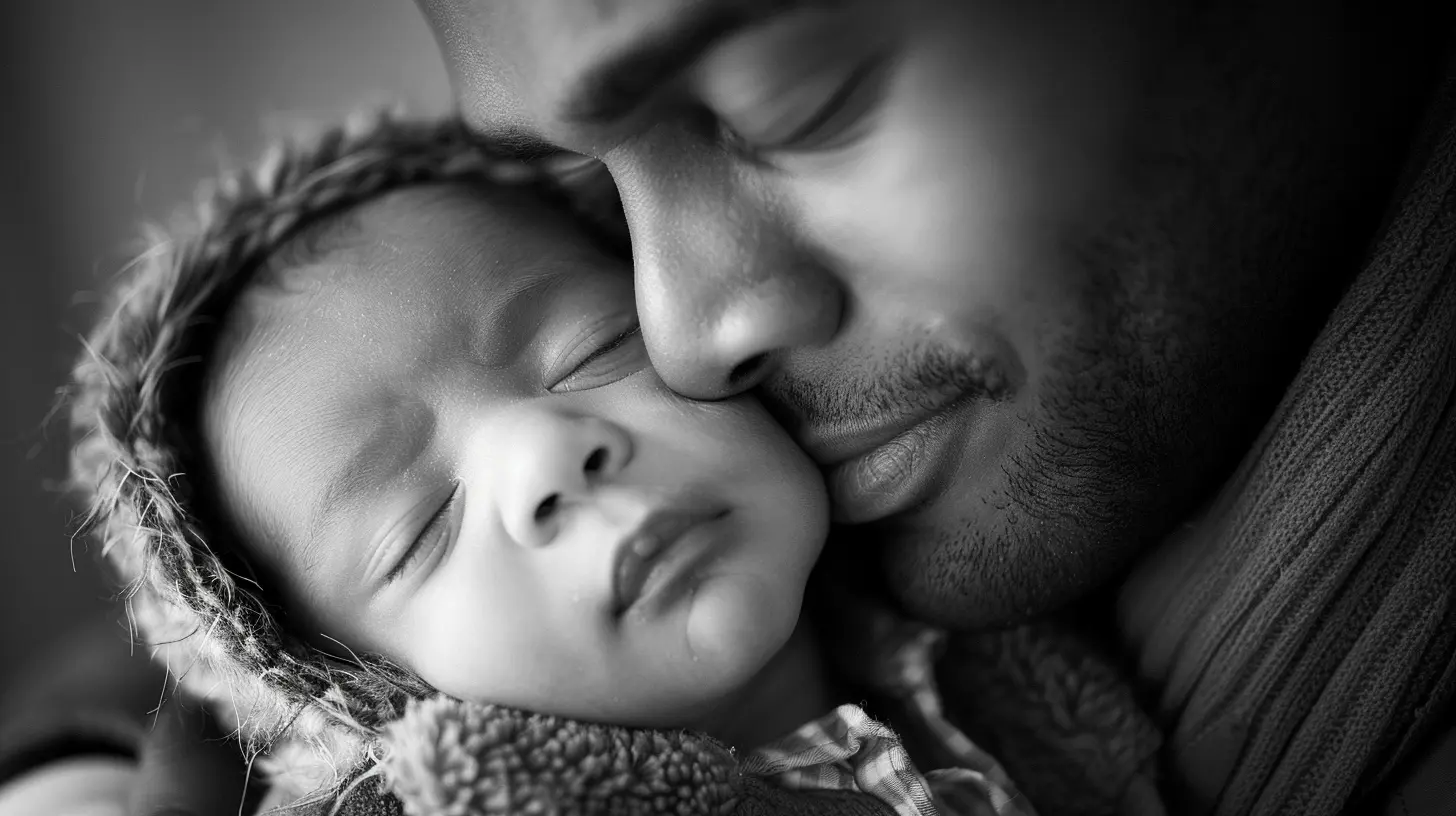Newborn Crying: What It Means and How to Respond
15 September 2025
Let’s be real: few things are more intense and heart-wrenching than the sound of a newborn crying—especially when you’ve tried everything and still can’t figure out what’s wrong. Whether you’re a first-time parent or a seasoned pro, those tiny wails can make you feel helpless, exhausted, and even second-guess yourself. But here’s the truth: crying is how your baby talks—and believe it or not, there’s usually a reason behind the tears.
In this article, we’re going to dig deep into why newborns cry, what they might be trying to tell you, and how you can respond in ways that soothe both your baby and your own parenting nerves.
Why Do Newborns Cry?
Babies have one primary communication tool: their lungs. From the moment they enter the world, crying becomes their built-in survival mechanism. It's how they say, "Hey, something’s up here!"Crying can mean a whole bunch of things—hunger, discomfort, overstimulation, or simply the need to be held. Think of your baby’s cry like a secret code. Over time, you’ll become fluent in their unique language. But while you're still learning to decode it, it can feel overwhelming.
Common Reasons Newborns Cry
Let’s break down the top culprits behind those late-night wails:1. Hunger
This one's the biggie. Most newborns need to eat every 2-3 hours. If your baby's rooting (turning their head toward your chest), sucking on their hands, or their cry sounds rhythmic or low-pitched, chances are they're hungry.Tip: Try feeding before the full-on meltdown begins. You’ll both be happier.
2. Dirty Diaper
Some babies are pretty chill about sitting in a soggy diaper. Others? Not so much. A dirty diaper can create irritation and rashes, so it’s worth checking as a first step.3. Sleepiness
Ironically, overtired babies fight sleep like it’s their job. If they’re rubbing their eyes, yawning, or zoning out—but still crying—they may just need help dozing off.Soothing trick: Try swaddling, rocking, using white noise, or dimming the lights to mimic the cozy womb environment.
4. Gas or Tummy Trouble
Ever been so bloated it hurts? Babies experience something similar. Whether it's trapped gas or colic, tummy issues are a major cause of newborn crying.Look for: Pulling knees to the chest, clenching fists, or grimacing. Bicycling their legs, gentle tummy massage, or gripe water (with your pediatrician’s okay) can help.
5. Overstimulation
The world is new and loud, and sometimes, it’s just too much. When babies are overstimulated—whether by noise, lights, or too much handling—they cry to shut everything down.Calming idea: Take them to a quiet, dimly lit room. Hold them close and speak softly. Think of yourself as their human white noise machine.
6. Need for Comfort
Sometimes, babies just want to be held. They’ve spent nine months snug and warm inside you. Being out in the big, cold world? Not so cozy.No, you can't spoil a newborn. They crave touch—it actually helps their development. So go ahead and snuggle.
7. Temperature Discomfort
Being too hot or too cold can easily make your baby cranky. Check their neck or back (hands and feet can be poor indicators) to feel their body temp.Pro tip: Dress your baby in one more layer than you’re wearing, and always use breathable fabrics.
Understanding Different Types of Cries
Yes, all crying may sound the same to the untrained ear. But believe it or not, babies use different cries for different needs.The “I’m Hungry” Cry
This one usually starts with a low-pitched, rhythmic sound. It can build into more intense crying if left too long.The “I’m Tired” Cry
Kind of whiny and fussy, often comes with yawns and eye rubbing.The “I’m in Pain” Cry
Short, high-pitched bursts. It’s sharp and often sudden, with a look of distress. Trust your gut with this one—if it feels off, call your doctor.The “I Need Comfort” Cry
More of a whimper or whiny sound, and it often stops when you pick them up.The more time you spend with your baby, the more you’ll start connecting the dots between different cries and their meanings. It’s like figuring out a new playlist—you’ll soon know what each “track” stands for.
How to Soothe a Crying Newborn
Okay, now for the big question: How do you calm the storm?Here’s a toolbox of soothing techniques that you can try:
1. The 5 S’s Method
Popularized by Dr. Harvey Karp, this method is gold for calming fussy babies:- Swaddle: Wrap them up snugly, like a baby burrito.
- Side or Stomach position: Hold them on their side (always put them to sleep on their back, though).
- Shush: Mimic the sound of blood flow in the womb.
- Swing: Gentle rocking or bouncing motions.
- Suck: Offer a pacifier or let them suck on your finger.
Try one or combine them all for best results.
2. Skin-to-Skin Contact
This isn’t just for the delivery room. Skin-to-skin contact balances baby’s temperature, breathing, and even heart rate. Plus, it’s incredibly bonding.3. Use Motion
A walk in a stroller, a ride in the car, or even pacing the living room in makeshift figure eights can do wonders.4. White Noise or Soft Music
Why does the vacuum calm babies down? Because white noise reminds them of your womb—constant, gentle noise. Try a fan, app, or white noise machine.5. Warm Bath
A quick soak can help relax muscles and quiet the fuss. Just make sure the water is warm—not hot—and that baby is always supervised.When Crying Might Mean Something More
Most of the time, crying is normal—even healthy. But there are moments when it could signal something more serious. If your baby’s crying is:- Unusual in tone (high-pitched, weak, or shrill)
- Accompanied by fever, vomiting, or diarrhea
- Persistent and inconsolable for hours
- Paired with lethargy or refusal to eat
…it might be time to call your pediatrician. Always trust your parental instincts. You know your baby best.
Tips for Parents: Staying Sane During All the Tears
Let’s not forget you. Taking care of a crying baby can be physically and emotionally exhausting. Here’s how to stay grounded:1. Take Breaks
It’s okay to place your baby safely in their crib and walk away for a few minutes to catch your breath.2. Lean on Your Village
Whether it’s your partner, a friend, or grandma—let people help. Don’t be afraid to ask for support.3. Practice Self-Care
Even 10 minutes to shower, nap, or drink a cup of coffee can make a difference.4. Talk About It
Feeling frustrated doesn’t make you a bad parent. Talk to someone. Join parenting groups or forums. You’re not alone—far from it.When Will the Crying Ease Up?
Hang in there—there is a light at the end of this colicky tunnel. Most babies hit a crying peak at around 6-8 weeks. After that, it tends to decrease as they grow and become better at communicating in other ways (smiles, coos, babbles).Until then, keep doing your best, trust your instincts, and remember: crying isn’t a reflection of your parenting skills. It’s just part of the journey.
Final Thoughts
Newborn crying is tough—on your ears, your nerves, and your heart. But with time, you’ll decode your baby’s cries and feel more confident responding to them. Think of it as learning a new dance: awkward at first, but soon you’ll find your rhythm.Above all, remember this—every baby cries, and every parent struggles sometimes. You’re not messing up; you’re figuring it out. And you’re doing better than you think.
all images in this post were generated using AI tools
Category:
Newborn CareAuthor:

Zelda Gill
Discussion
rate this article
1 comments
Delilah McClintock
Caring for a newborn can be overwhelming, especially with endless crying. Remember, each cry is a form of communication. Trust your instincts, seek support, and know you're not alone on this challenging yet beautiful journey.
September 20, 2025 at 2:45 AM

Zelda Gill
Thank you for your thoughtful comment! It's so important to recognize and respond to a newborn's cries with empathy and support. You're absolutely right—trusting our instincts and seeking help can make all the difference.


